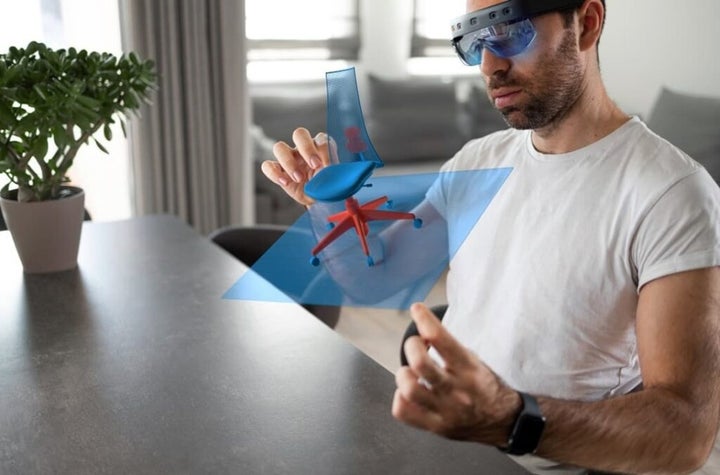At the beginning of March, we collected Meta‘s roadmap until 2027 in the field of virtual reality and augmented reality. Among the products being developed by the parent company of Facebook is one of its flagship projects: Artemis.
Theoretically, the Artemis project would consist of augmented reality glasses capable of projecting high-quality holograms overlaid on the real world. It’s an ambitious project scheduled for release in 2027, and Meta aims for it to become as popular as Apple’s iPhone, although it seems likely to fall short of expectations (if it manages to take off at all).
According to an article by The Information, the first batch of these AR glasses may not include several high-end components originally planned by Meta. Instead, they may rely on much older technology.

Firstly, Meta has reportedly sacrificed the planned MicroLED displays for its future augmented reality glasses and has opted for liquid crystal on silicon (LCoS) instead. This technology is far from new and was used in cinema projectors back in the 1990s.
Additionally, the company has abandoned the idea of using silicon carbide in the glasses, which would have allowed for a 70-degree field of view. Instead, they want to use glass waveguide technology, which allows light to pass through the glasses and reach the eyes but limits the field of view to 50 degrees.
But that’s not all. According to The Information, Meta has also made changes to some components of the “oval-shaped wireless puck” that comes with the device to “offload some of the computing,” such as removing a LIDAR sensor that would have enabled the device to “detect the environment and import 3D objects, including faces and bodies, into the digital world.”
Indeed, it appears that Meta has made these decisions in order to save on production costs and avoid making the product too expensive for widespread adoption. While the initial versions of these augmented reality glasses may experience this downgrade, there’s a possibility that the company may reconsider and opt for higher-quality components in future iterations.
Some of the links added in the article are part of affiliate campaigns and may represent benefits for Softonic.


